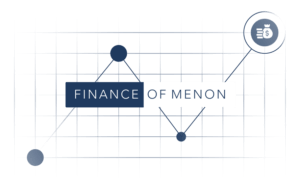What to Know Before You Move Abroad: A Financial Checklist
Relocating to another country can be thrilling—new cultures, fresh experiences, and a shift in perspective. But while your passport might get a stamp, your financial life doesn’t hit pause. In fact, moving abroad introduces a layer of financial complexity that requires planning, especially for U.S. citizens who are still tethered to the U.S. tax system, even while living overseas.
From taxes to retirement plans, banking to estate planning—here’s what you need to know before making the move.
1. Understand Your Tax Obligations
The U.S. is one of the few countries that taxes based on citizenship, not just residency. That means U.S. citizens and green card holders are taxed on worldwide income, even if they live abroad.
Double Taxation Risk
Living in another country can result in being taxed by both the U.S. and your new home. Thankfully, there are tools to help mitigate that risk:
- Foreign Earned Income Exclusion (FEIE): Lets you exclude a portion of foreign-earned income from U.S. taxes if you meet residency requirements.
- Foreign Tax Credit (FTC): Offers a dollar-for-dollar credit for taxes paid to a foreign government, reducing your U.S. tax liability on the same income.
Tip: These aren’t mutually exclusive—you may be able to use both, depending on your income mix.
2. What Happens to Your Retirement Accounts?
Relocating doesn’t automatically affect your U.S.-based retirement accounts, but your ability to contribute—or access—may change.
401(k) Plans
You can typically leave your 401(k) untouched, but if you’re no longer employed by a U.S. company, additional contributions are unlikely. A rollover into an IRA might offer better flexibility and control.
IRAs
You can still own an IRA abroad, but contributing gets tricky if your income is foreign-earned and excluded via FEIE. Additionally, some foreign countries don’t recognize U.S. retirement accounts as tax-advantaged, which can lead to unexpected tax bills.
Key Consideration: Understand how your new country treats these accounts—some may tax growth, distributions, or even contributions.
3. Banking and Investments: Watch the Red Tape
Maintaining U.S. bank and brokerage accounts can be difficult once you move abroad. Due to regulations like FATCA (Foreign Account Tax Compliance Act), many U.S. financial institutions place restrictions on clients who reside internationally.
Things to Know:
- Some U.S. banks may freeze or close accounts for expats.
- International brokerage access may be limited or blocked entirely.
- FATCA requires foreign banks to report U.S. clients’ holdings—some choose not to work to avoid the hassle while others do albeit at a cost of service.
What You Can Do:
- Open a local bank account for everyday use.
- Be mindful of currency exchange fees and transfer costs between countries.
- If you keep U.S. accounts, notify the institutions of your new address and check for residency-related restrictions.
- Ensure that your local banks are aware of your cross border liquid holdings between key banks that recognize the relationship.
4. Healthcare Abroad: What’s Covered, What’s Not
U.S. health insurance rarely provides coverage outside the country. You’ll need to either:
- Purchase international health insurance, or
- Enroll in your new country’s national healthcare system, if eligible.
Health Savings Accounts (HSAs):
- You can keep existing HSA funds.
- New contributions might not be allowed unless you maintain a qualifying U.S. high-deductible plan.
- Qualified medical expenses must still meet IRS rules.
Action Step: Review both the local healthcare system and available global insurance plans before you move.
5. Don’t Overlook Estate Planning
Cross-border living complicates estate planning. Different countries have their own rules around wills, inheritance, and taxation.
Here’s what to consider:
- Update your will and beneficiaries to reflect local laws.
- Forced heirship laws in some countries may override your wishes and dictate how your estate is distributed.
- Trusts and gifting strategies that work in the U.S. may be treated unfavorably abroad.
Advice: Work with an estate attorney who understands both U.S. and local jurisdiction laws to avoid conflicts and ensure your intentions are honored.
6. Stay Compliant with U.S. Reporting Requirements
Even while living abroad, you must still file U.S. tax returns. You may also need to report foreign financial assets.
Key Forms to Know:
- FBAR (FinCEN Form 114): Required if you hold more than $10,000 in foreign accounts in aggregate.
- FATCA (Form 8938): Report specified foreign assets if they exceed certain thresholds.
Stay Ahead:
- File everything on time—penalties are steep.
- Track all foreign holdings carefully.
- Review your reporting obligations each year as thresholds may change.
7. Work with the Right Professionals
Navigating international tax law, retirement planning, and cross-border estate issues isn’t something you should DIY. An advisor experienced in expat financial planning can help you:
- Minimize tax liability across jurisdictions.
- Remain compliant with reporting rules.
- Align your financial plan with your global lifestyle.
Remember: Laws change frequently—having a professional on your side can help you adapt quickly and avoid surprises.
Final Thoughts
Moving abroad is more than a lifestyle choice—it’s a financial decision that echoes across your taxes, investments, and estate plan. With proactive planning and the right guidance, you can enjoy life abroad without compromising your long-term financial health.
Disclaimer: Tax laws and regulations are subject to change. Always consult with qualified professionals and refer to official government resources for the most current guidance. This content is for informational purposes only and should not be considered investment advice. All investments carry risks, including the loss of principal. Finomenon Investments LLC cannot guarantee future results.






